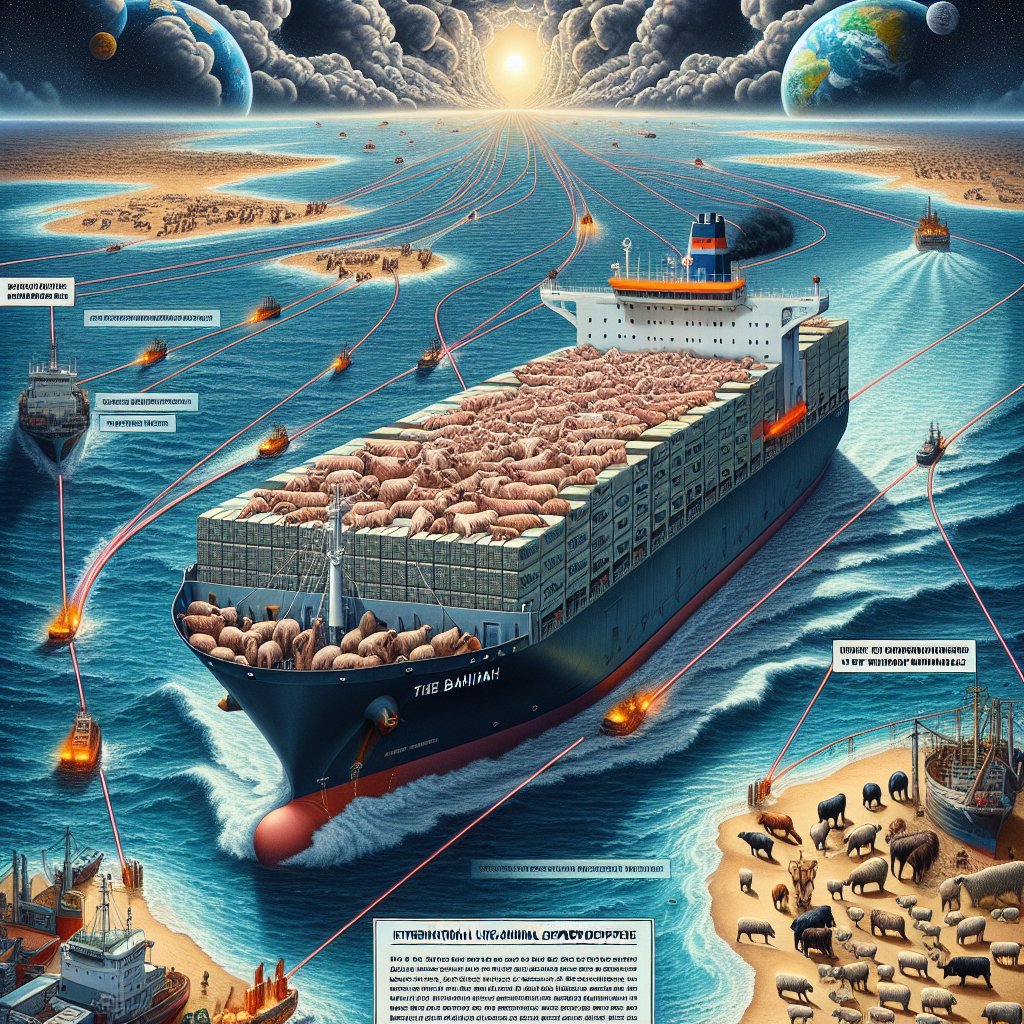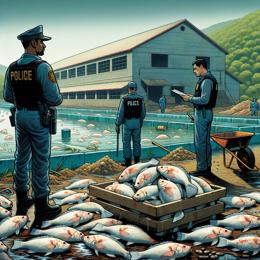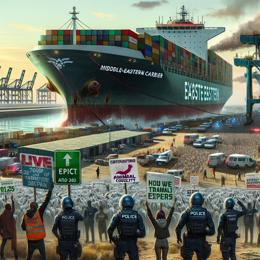Image created by AI
NSPCA Raises Alarm Over Livestock Carrier's Extended Voyage Around Cape of Good Hope
The National Council of SPCAs (NSPCA) in South Africa has expressed grave concerns about the welfare of approximately 16,000 sheep and cattle expected to endure an extended journey around the Cape of Good Hope. The livestock carrier, named the Bahijah, has opted for this extended sea route due to regional conflicts disrupting the usual pathway through the Red Sea.
The Bahijah, having already set sail from Australian waters, was initially intended to travel to Israel directly through the Red Sea. However, unrest in the area compelled the vessel to pivot towards the longer southern route around the African continent. This decision has not only significantly lengthened the travel time for the animals on board but also raised serious animal welfare issues.
According to Dr. Bryce Marock, a veterinary consultant for the NSPCA, the Bahijah's initial journey was cut short due to complications in South Africa. The ship returned to Australia with the animals in tow, where they were kept onboard at port for about two weeks. During this time, stakeholders grappled with decisions on the animals' future and wellbeing amid bureaucratic challenges.
A second application to transport the animals was eventually approved, re-authorizing the Bahijah to set sail with its living cargo. However, the decision did not sit well with animal rights advocates, including Dr. Marock, who condemned it as "barbaric." The revised route around the Cape of Good Hope significantly extends the time these animals will spend at sea, already extended by the previous aborted trip and subsequent port stay.
The situation brought to mind a recent incident with another livestock carrier, the Al Kuwait, which also demanded the scrutiny of the NSPCA. Dr. Marock was part of the team that investigated this vessel when it docked in Cape Town Harbour in February. Carrying close to 19,000 cattle from Brazil to Iraq, the ship’s arrival triggered similar concerns regarding the treatment of animals during long sea voyages.
These incidents highlight ongoing disputes surrounding the international live animal export trade, where transportation conditions and the related stress and potential suffering of animals are central to the discourse. Animal welfare groups argue that extended journeys aboard such carriers often lead to severe welfare problems, including illness or death, due to factors like overcrowding, temperature extremes, lack of veterinary care, and poor hygiene.
Legal frameworks for the protection of animals during transport are in place internationally, yet the enforcement and monitoring of such regulations remain challenging. The NSPCA, alongside global animal rights organizations, continues to advocate for the adoption of stricter standards and the reinforcement of existing codes to safeguard the welfare of livestock on such voyages.
The NSPCA's outcry surrounding the Bahijah's journey is emblematic of a broader call to action—the need for a reevaluation of live animal export practices and the pursuit of alternatives that prioritize animal welfare.










